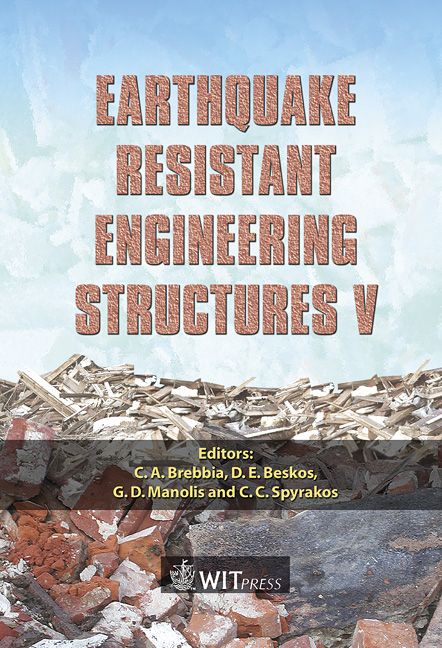Empirical Arias Intensity Attenuation Relationships For The Seismic Hazard Analysis Of Greece
Price
Free (open access)
Transaction
Volume
81
Pages
10
Published
2005
Size
1,863 kb
Paper DOI
10.2495/ERES050041
Copyright
WIT Press
Author(s)
G.-A. Tselentis, L. Danciu & F. Gkika
Abstract
New empirical attenuation relationships of Arias Intensity for various site conditions based on the strong-motion data recorded in Greece are presented. With regard to attenuation relationships, for the region of Greece, there are no Arias Intensity empirical attenuation models available today that may be used in seismic hazard analysis. For each site class, the attenuation relationship of Arias Intensity is expressed as a function of moment magnitude (M) and epicentral distance (R) and it is derived using a mixed effects regression analysis method. As a final result probabilistic seismic hazard maps in terms of Arias Intensity have been developed for the territory of Greece. Keywords: arias intensity, attenuation relationships, seismic hazard, Greece. 1 Introduction Attenuation relationships are the core of seismic hazard analyses. They are developed by statistical analyses performed on a large number of records which were obtained in compatible seismotectonic regions. Traditionally the empirical attenuation relationships are developed in terms of peak acceleration or spectral acceleration and they are largely (but not entirely) data dependent. Ground motion parameters other than the commonly used spectral and peak acceleration can significantly affect the nonlinear response and performance of structures. These parameters incorporate in their definition amplitude, frequency content, and duration of the ground motion and are more adequate to describe the destructiveness potential of an earthquake. One such parameter is the Arias Intensity, (Arias [2]). Over the last decades several Arias Intensity empirical attenuation relations have been presented, (Keefer and Wilson [6], Kayen and
Keywords
arias intensity, attenuation relationships, seismic hazard, Greece.





